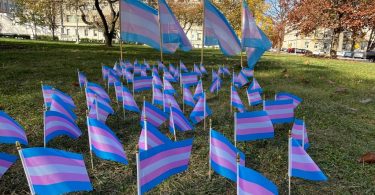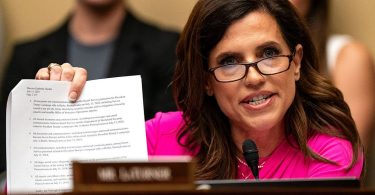Living with an addiction can turn into a life or death situation. It’s one that many LGBTI people will be familiar with. Numerous studies have found that we are more likely to experience substance abuse or alcohol-related problems than our heterosexual peers.
When it comes to treating addiction, the Twelve Step Recovery program is popular worldwide. Its origins date back to the 1930s, when it was devised by two addicts in the US. However, not everyone needs to follow the Twelve Steps to recovery, and it’s not the only program out there.
The Buddhist approach to treating addiction
Queer Buddhists Valerie Mason-John and Dr. Paramabandhu Groves published their book, Eight Step Recovery – Using the Buddha’s Teachings to Overcome Addiction, in 2013.

Dr Paramabandhu Groves (Photo: Supplied)
The book has just been re-published in an expanded format, with additional guided meditation resources and advice for starting an Eight Step Recovery group.
Mason-John visited the Gay Star News headquarters in London last week to chat about the book and Eight Step recovery. She was keen to point out that it should be regarded as a complementary to the Twelve Steps, rather than a replacement.
Whereas the 12-steps relies upon addicts praying to a ‘Higher Power’ to help them conquer their addiction, the eight steps utilizes mindfulness, meditation, breathing techniques and Buddhist teachings.
‘Twelve steps has been incredibly important to the recovery world but things are changing. We have Buddhist recovery, we have non-secular recovery … Once upon a time, if you was an alcoholic or an addict, you only had the choice of the asylum, and then when 12-steps came, the choice between the asylum or 12 steps. But over the past 15 years, things have really changed.’
‘The twelve steps is far more theistic. There’s an emphasis on believing in God. Although they say in the rooms, God could be “Good Orderly Direction,” there is this emphasis with God. Whereas with Buddhist recovery, we have no emphasis on God.’
From foster home to sleeping rough
Mason-John has struggled with a number of addictions herself. She had a difficult upbringing in a children’s foster home in Essex, England, (‘I was ugly. In the children’s home that I grew up in my name was “gruesome”’) and spent some time living rough on the streets. When she escaped to London, she threw herself on to the club scene and the various drugs it offered.
At the same time, she suffered from bulimia. She says she became ‘addicted to the craving to be loved and noticed’. Her own path to recovery began when a friend took her to a Buddhist meditation session.
She has also taken advantage of the Twelve Step program. She believes 12-steppers can see the eight-steps as an alternative or as a complementary practice.
‘Addiction affects all all humans’
She is wary of singling out LGBTI people are special cases when it comes to addiction.
‘Addiction affects all humans … I don’t like to pick on the LGBT community, because I think most of the research has been done on those of us who are out, and part of being out used to be being in the nightclubs.
‘And we know in a nightclub comes alcohol, drugs, and so yes, there was a very high percentage of us that had addictions.
‘But then there’s a very high percentage of people who aren’t out, and what are they doing with their lives? I would say there’s a part of our community who are susceptible to having addictions, but I wouldn’t blame it on the fact I’m queer.
‘The fact I’m queer is not the reason I have addictions. The reasons I have addictions goes back to my conditioning in childhood. In a way, I would say, actually, the queer scene has saved many of us. It’s kept many of us alive. We were able to be somewhere where we could be accepted.
‘The reasons we have addictions really does go back to early childhood. It’s an adaptation to an environment that we try to survive.
‘Accepting that this human life will bring suffering’
Both Twelve Step and Eight Step programs share some similarities. Those practicing them are encouraged to take a morel inventory of their lives – to help them realize what is working and what is not; what is harming and what is helping.
However, for those unfamiliar with the teaching of Buddhism, some steps may be a revelation.
Step one is: ‘Accepting that this human life will bring suffering.’
In a world where we’re always told to ‘think positive’, accepting that suffering is part of the human condition may be a challenge for some.
‘We will suffer as human beings,’ Mason-John says. ‘Because we age, you know? Who likes ageing? We’re going to get sick. Who likes getting sick? We’re going to die. Who wants to die?
‘Because of the human condition, we will experience suffering, and the thing is, often we’re in protest. We think we shouldn’t be suffering. We think that there’s something wrong with this suffering, this pain.
‘But actually, that is part of the human condition, that there is going to be pain, and … because we want to push it away, we create this extra suffering, which is unnecessary, and we don’t need to have that in our lives.’
Growing addictions
Mason-John says addicts can work through the Eight Step Recovery program on their own. Alternatively, they can set-up a regular meeting with others. Several groups have sprung up in the US and Canada (where she is now based), but less so in the UK – as yet.
However, there’s reason to see a growing demand for both Twelve Step and Eight Step recovery.
The book is not just for those with alcohol, food or drug problems. Addictions can take many forms – from constantly scrolling through social media and obsessing over ‘likes’ to always checking the hook-up app on your phone.
The World Health Organization has just recently proposed adding ‘Gaming Disorder’ to its official list of medical conditions.
It seems increasingly easy to become stuck in addictive behaviour traits, whether seeking attention, validation or comfort.
Eight Step Recovery is out now via Windhorse Publications.
WIN: A copy of Eight Step Recovery
We have five copies of Eight Step Recovery to give away to readers. Simply email the answer to the following question to [email protected] by 1 July 2018.
What is does the first step of the Eight Step Recovery program state?
Winners will be chosen at random after 1 July 2018.

See also
Crystal Meth: Three gay men talk candidly about their use and recovery





